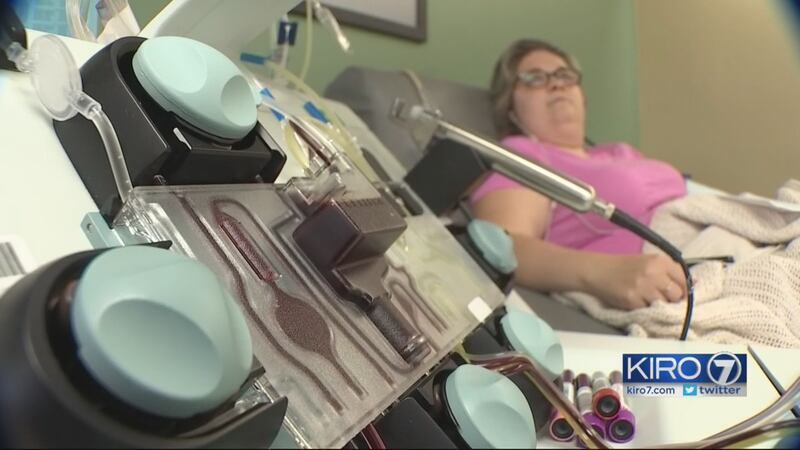EVERETT, Wash. — Zika virus cases that originated in Florida have prompted the nation's Food and Drug Administration to ramp up screening for the virus in the U.S.
On Friday, the FDA said blood donation centers will now have to test for Zika, but some blood centers in the Pacific Northwest say that move is costly and unnecessary.
KIRO 7's Joanna Small met Nathan Roy as he was donating blood at Bloodworks Northwest in Everett Friday. He said he probably spent less time in the donation chair than he did in the chair in the lobby filling out the donor questionnaire.
The questionnaire, which all prospective donors at Bloodworks Northwest must fill out before offering up their arm, is pretty extensive.
"They ask about travel during certain time periods, if you've been to certain countries or South America, European countries, African countries," Nathan said.
People who have never make it to the donation phase.
Yet Friday, the FDA said all blood centers will now be required to screen for Zika virus, and that has James AuBuchon, president and CEO of Bloodworks Northwest, quite concerned.
AuBuchon says it's costly—about $2.5 million a year.
"In addition it will delay the release of some of our units of blood, AuBuchon said. "Some blood components have a very short lifespan; platelets are five days, for example. When we lose time by performing additional testing on units that does cause a ripple effect in terms of the availability in the blood supply."
These supplies are already low in the summertime, AuBuchon told us.
There have been five cases of Zika virus in Snohomish County, but the health district is only screening pregnant women who have traveled or been exposed to someone who has traveled to a country where Zika is prevalent.
"Not everybody needs to be screened," Patricia Yepassis-Zembrou, communicable disease specialist for the Snohomish County Health District, said.
Nathan Roy falls into that category, so while he doesn't mind a free Zika screening, he won't be on pins and needles waiting for the results.
"No I'm not worried about it at all," Nathan said.
AuBuchon says another problem is there are only two manufacturers making the equipment to screen blood for Zika virus and they already don't have enough.
Low-risk states like Washington are supposed to begin the screens in three months, but AuBuchon says the equipment may not be available by then.
Cox Media Group








